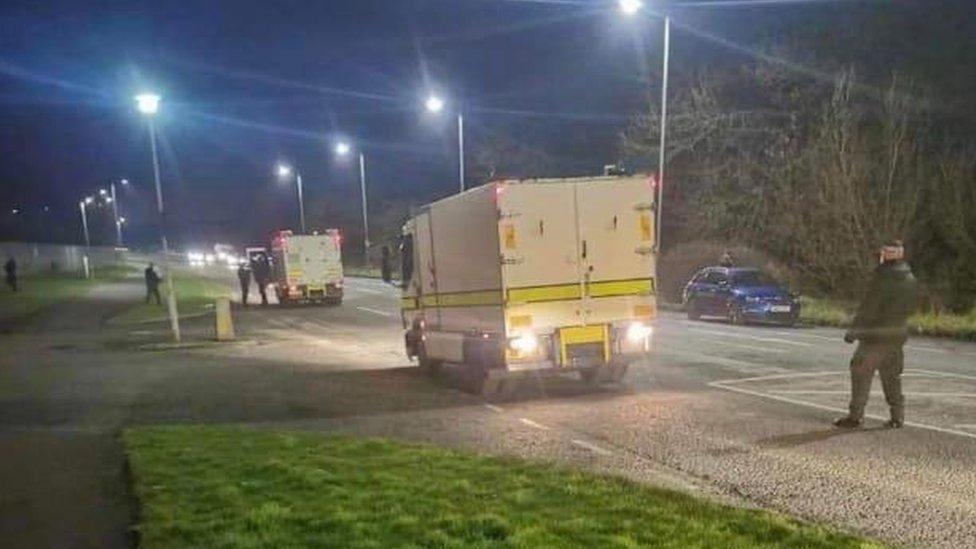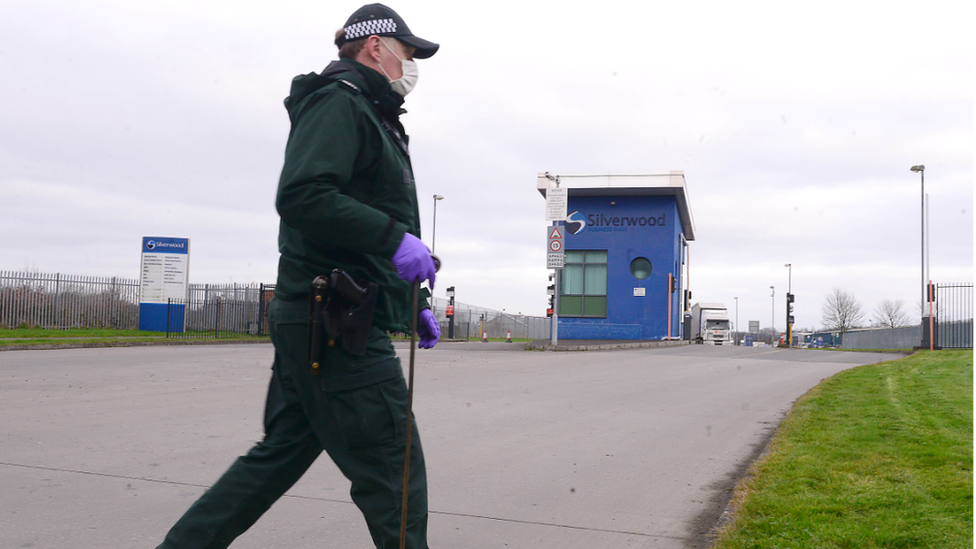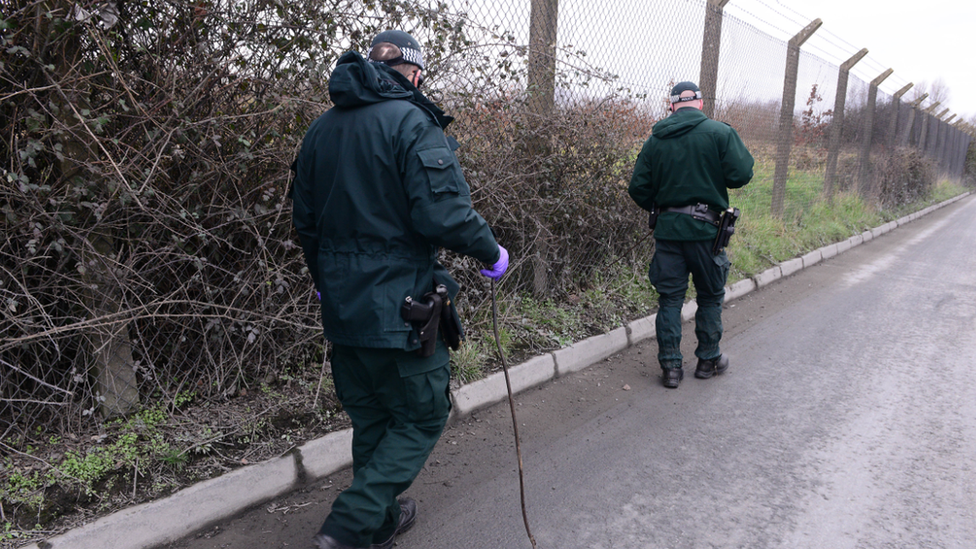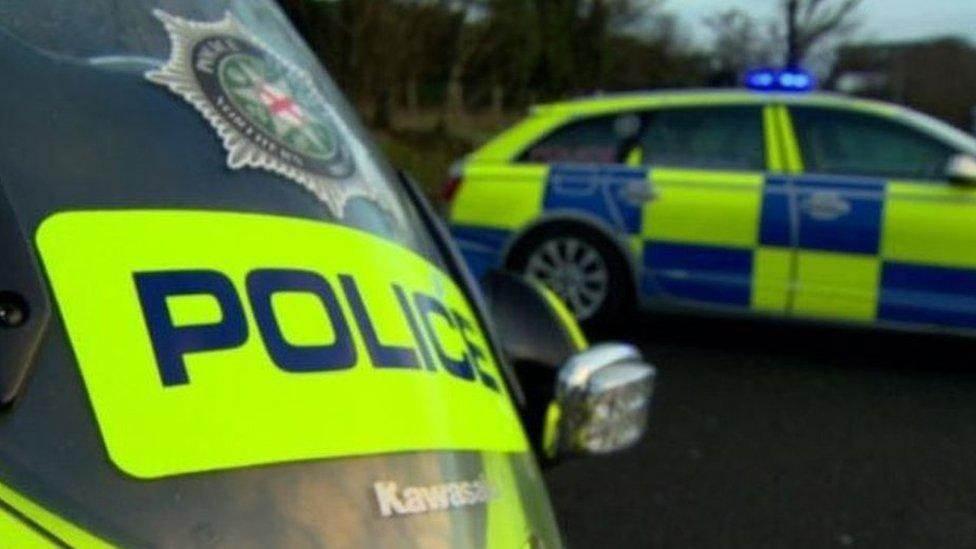Police believe CIRA planted bomb intended for 'Brexit day' attack
- Published

The device was uncovered attached to a lorry in Lurgan on Monday
Police believe the Continuity IRA (CIRA) was responsible for a bomb found attached to a lorry in County Armagh on Tuesday morning.
It is thought the device may have been intended for a Brexit day attack.
Police said they first received a report about an explosive device in a lorry at Belfast docks on 31 January - the date the UK left the EU.
In a call to a media outlet, it was claimed the lorry was due to travel by ferry to Scotland.
A search was conducted but nothing was found.

It is understood the lorry did not leave the industrial estate between the times of the two calls
On Monday, a more detailed report helped locate the device at Silverwood Industrial Estate in Lurgan.
Police have not yet given an indication of the size of the bomb, but it is understood the lorry did not leave the industrial estate between the times of the two calls.
Assistant Chief Constable George Clarke said the initial report claimed the lorry would travel "on the midnight ferry", and added that no such ferry crossing exists.

Allow X content?
This article contains content provided by X. We ask for your permission before anything is loaded, as they may be using cookies and other technologies. You may want to read X’s cookie policy, external and privacy policy, external before accepting. To view this content choose ‘accept and continue’.

Police said they worked with a haulage company, who own the lorry, to search about 400 vehicles and locate the explosive device.
It was made safe by ammunition technical officer (ATO).
Det Supt Sean Wright said the "only conclusion that we can draw is that once again dissident republicans have shown a total disregard for the community, for businesses and for wider society".

Police search the area around Silverwood Industrial Estate in Lurgan
He added that "had this vehicle travelled and the device had exploded at any point along the M1, across the Westlink or into the Harbour estate the risks posed do not bear thinking about".
Det Supt Wright appealed for information, in particular from anyone who noticed any suspicious activity at Silverwood Industrial Estate between 16:00 and 22:00 on 31 January.
Seamus Leheny, from the Freight Transport Association, called the attack "reckless".
"If it was viable, it could have put the driver of the lorry and their colleagues, road users and anyone in the vicinity of the lorry in serious danger. The consequences could have been catastrophic."

Assistant Chief Constable George Clarke said the initial report claimed the lorry would travel on a ferry to Scotland
- Published5 February 2020
